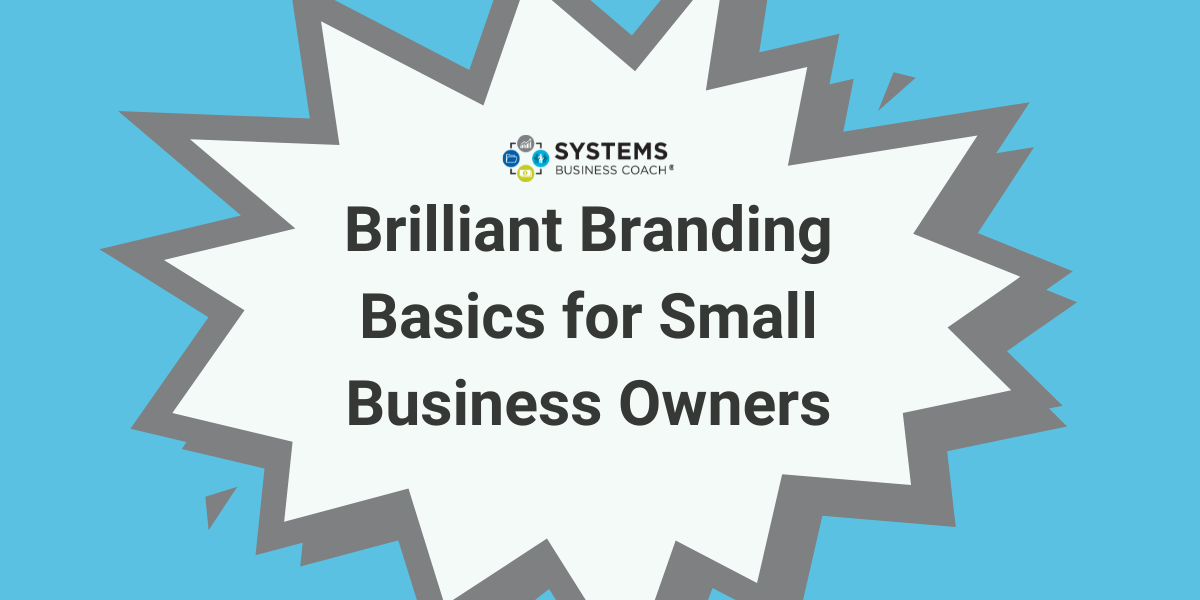“Branding? That’s like my company colours and logo, right?”
Yes, and then some!
More than a clever logo, the basics of your small business brand is the experience people have of doing business with you. It only takes a split second for consumers to make a judgement about us and our company.
“Products are made in the factory but brands are created in the mind.”
Walter Landor
When crafting your brand, you can consider:
- First impressions
- Previous experiences
- The way your business looks physically and virtually
- The tone your team uses to answer your phone or e-mails
- Energy of your work environment
- Your promise to your customers
Branding is the process of creating a positive identity in the marketplace, one that is a reflection of your small business.
Your brand tells the world what they can expect from you as a business, as an owner, and what they can expect from your products and services. It separates you from your competition. Your brand is your organization’s personality.
Branding example
Let’s look at the difference between the brands of locally-owned, Joe’s Java, and the coffee chain Starbucks.
Joe’s Java sells the best coffee in town and their followers know that they may or may not be open at the same time on Monday mornings. The experience of great coffee AND waiting until Joe’s opens are both pieces of that company’s brand.

Starbucks, on the other hand, has great coffee, not necessarily the best but they are always open on time, their facilities are clean and their logo is recognized worldwide.
Why is branding important?
The basics of your brand will be reflected in how you sell, how you market your small business, and how you treat one another every day. With a clear brand, prospects and customers can identify you in the market and support you in establishing your reputation.
Things that can negatively affect your brand include:
- An unintentionally messy environment
- Grumpy staff
- Inconsistent company colours
- Not responding to a request in a timely manner.
Strategically and intentionally creating your brand is better than letting your brand just happen. We as humans like predictability, and as small business owners we can create this through branding.
How to get started
A great brand has a comprehensive strategy. This strategy comes from your company promise, your values, and your purpose for owning a business in the first place.
Ask yourself: How do I want my clients and prospects to feel about doing business with my company?
In your brand strategy consider the following:
- Company promise. (that one thing your company stands by)
- Company values
- Logo
- Style guide (your colours, fonts, images)
- Communication strategy (with prospects, clients, vendors, each other)
- Sensory environment standards (music, sights, smells, tone of voice used)
Your brand then becomes a reflection of how you run your business every day.

Maintaining your brand
As you strategically decide what you want your brand experience to be, document the systems that contribute to your brand.
Let’s say you decide your brand is modern and clean. You could create a checklist for staff to ensure the client area is always tidy. Or maybe your brand is chill and relatable. You could provide a training system so people answer the phone in the style of your company.
For your marketing, you could have a graphics specialist create a visual identity guide that you use 100% of the time for all external publications.
And most of all…
The world’s best brand ambassadors are your employees!
Check-in with them on how they feel about working for your company. What are some improvements they would like to see in areas such as customer service, their workspace, and company reputation?
Your systems and employees will be the key to maintaining your brand.

How will you know if you are on track?
Can you check off any of the items on the list below? If so, you are doing a great job maintaining the branding basics in your small business.
- You know what your organization stands for and what makes it different from others in the marketplace.
- Everything is physically branded.
- The experience of doing business with you is consistently at the level you set.
- Prospects and clients refer others to your company.
- You stand above and distinctly different from your competition.
- Your team understands your brand promise and is able to explain the most important elements of your brand identity.
What’s your small business brand?
What’s the heart of your brand? Want to share it in the comments?
The core of the Systems Business Coach brand is “Listen, and together find a way.”
Until next time, enjoy your Entrepreneurial Journey!












